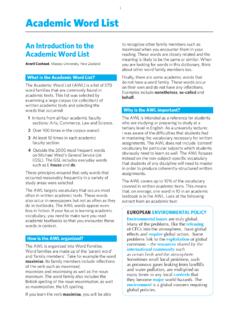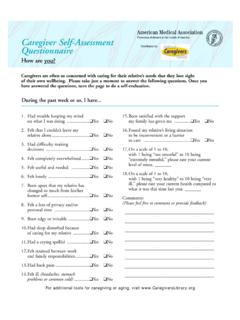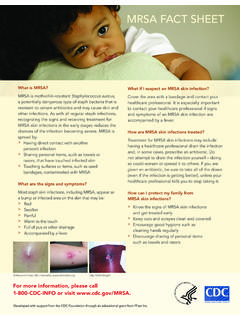Transcription of Jean Heller Interview Transcript - Weebly
1 Phone Interview with Jean Heller * Heller begins to discuss the study Heller : Believe me, every doctor in the country knows about it [the Tuskegee Syphilis Study] It really influences everything they do. The whole nut of it is informed consent. Interviewer: Definitely, it was so influential to medical policies today. Heller : Now something you probably haven't thought of, you know all those medicine commercials you see on television where they spend 90% of the time telling you all the horrible things that could go wrong? That's informed consent. The chances of any of those things happening are very, very slim, but they have to tell you that it's informed consent. It's kind of interesting it reaches into every little facet of your life, even the aspirin you take when you get a headache. Interviewer: And has that directly stemmed from what happened in Tuskegee? Heller : Yes specifically Tuskegee altered the way institutions that get federal money have to justify their human or animal experimentation.
2 The disclaimers you see on the medicine commercials aren't mandated by the Tuskegee study, but they are definitely influenced from it. It touches the lives of everyone. Interviewer: Definitely. Our first question is we were wondering if you could tell us the story about how you found out about the Tuskegee study. Heller : It's pretty much the same as it is in the story I sent you to read. There was a young man in San Francisco in what was then the Public Health Service. The US Public Health Service is the predecessor to the Center For Disease Control and the US Public Health Service was surveying, pretty much nationally, cases, instances of sexually transmitted diseases. It was up to this young college student, whose name was Peter Buxton, to try to get a handle on the incidences of syphilis in San Francisco. During the course of doing his work, he heard about this study and he didn't want to believe it was true, so he started asking his supervisors about it and they just looked at him and answered one way or the other.
3 One supervisor wrote him a note and said, this is really none of your business, there is nothing wrong with it, just do what you're paid to do and be quiet I'm paraphrasing those are not his words. He got frustrated and went to a friend of his in San Francisco who was a reporter, but she was not a investigative reporter she knew me though and she said, I'll pass this onto somebody who might have time to look into this which she did. And that's how I got the letters. Just a couple of letters that she'd gotten, but one of the letters that said, there is nothing wrong with this, it's none of your business, ignore it because that letter did not specifically deny that the study was taking place. In fact it took cognizance of the study. It acknowledges that something like that was going on. That's how I found out about it, and then it was just a matter of hammering on people until they gave me the information I wanted.
4 Interviewer: Once you had published your expos , what was the reaction within the community to the study? Heller : Well, when I went down to Tuskegee before the story broke, just to see the community and get a flavor for it, and I went back again after the story and was very proud of myself, it was a huge story. I was a kid just out of graduate school and here I. was with the biggest story of the summer, except for Watergate. Everybody was talking about it, everybody was upset about it, Kennedy was going to hold hearings in the Senate about it everything was going to change, everybody said. I had caused it and I was proud of having done it. And then, I went back to Tuskegee into the aftermath and I was sitting on a park bench in the town square with Charlie Pollard, who was one of the survivors. He said, You know, this used to a friendly town and now people cross the street to avoid shaking my hand.
5 I think that the story is in the one I did in 1997, but I. started to cry It was like What have I done to these people? I truly felt like I had wrecked their lives.. Interviewer: Within the community, was there any stigma from the families of victims towards their relatives who were patients of the study? Heller : I don't think it was uniform. I think there were some wives who looked at their husbands like, what have you done to me? Of course, the wives could have caught it. But I think everyone understood that these men did not know what was happening to them, and that was the great crime of the study. These men were lied to. They had no idea what was happening to them. No idea what they had, no idea that they were getting fake medicine, no idea that it wasn't an honor to be part of a federal government study. They were driven around in cars. They were given hot meals. They were given certificates of thanks for their participation.
6 They felt like it was an honor. I think when they found out, it wasn't so much a stigma on them coming from their families as was a deep sorrow and not understanding why it happened to them what had they done to deserve this; fear that they had passed the disease on, to their wives, to their girlfriends, to their children, for God's sake, and that had happened. They're still looking for all the people who were victimized I mean they chose one hundred men with syphilis for this study and they probably found four hundred right now who have been infected by the participants. I. don't know that for fact, but I know it's a lot. I think there probably was some angst among family members, but I think everyone just felt used. That's the way it came across to me they just felt used. It was their lives at stake. Interviewer: So, in your article you mentioned about how the men were all African American, poor, and lacking formal education.
7 Can you talk about the significance of this in the study? Heller : It didn't have a role. The reason that population was chosen is it had the black population was the highest per capita incidence of naturally occurring syphilis in the country. They were chosen not because they were uneducated, although that certainly helped, not because they were poor, although that certainly helped, they were chosen simply because they were part of a population that had more syphilis than any other population around. Really they were targets of opportunity, strictly targets of opportunity. There was no humanity in this whatsoever. No consideration given to their station. No consideration given to them. They were just targets. They were just convenient Guinea pigs. Interviewer: So what you're saying is that it was simpler for the government to use them, it was the easiest option, essentially.
8 Heller : Yeah, I mean it was the easiest option in that you had a huge population of syphilis in a fairly small area. It was rural so they were easy to corral, easy to control. There was a Public Health Service nurse who was stationed there. It was her job to keep this station under control. She had to report to the white doctors when one of these men, and it occasionally happened, when one of these men found out what they had, and they went over to Montgomery and checked themselves into a clinic for treatment. The doctors literally would go to the clinic and tell the clinic that they would shut them down if they admitted anyone else from Tuskegee. They'd pull the poor guys out of the clinic and send them home. They'd find out on their own what they had. They went to get treatment. These Public Health Service doctors pulled them out of the clinics and sent them home. I mean, it was unconscionable.
9 And the nurse, this nurse, who was in charge of reporting them, was a black woman Nurse Rivers. Interviewer: Also in your article, you talked about how many African Americans began to believe that AIDS was a white conspiracy to commit genocide against the African American race. How do you feel that this sense of distrust is related to Tuskegee? Heller : Well, I'm not an expert, but the experts tell me it is almost 100% that the aftermath of the Tuskegee study disclosure was so great that blacks would not trust anything that white doctors wanted to do. I'm not sure if it's that great anymore, I would hope it isn't. But as one person said in that article, this is going to take medicine a long, long, long time to overcome the impacts of what the Tuskegee Study did to their credibility. Interviewer: Do you know of other examples of this distrust, or any further repercussions this distrust had?
10 Heller : Well, I think it was pretty much system wide. If they ever trusted white doctors, they ceased trusting white doctors. They wouldn't take part in AIDS research, they wouldn't take part in sickle cell anemia research, they wouldn't take part in any of it. And a lot of these latter studies, especially into AIDS and sickle cell anemia, were studies which were totally legitimate, totally justified, and completely aimed at improving the health and quality of life in black communities. But blacks didn't trust them, and if I were black, I wouldn't either. I mean every single one of these doctors who conducted the Tuskegee Syphilis Study was white. Every one. The only black medical person was Nurse Rivers. Interviewer: You noted in your article that reports of the study were regularly posted in respected medical journals if that was the case, then how did the study manage to stay secretive?



